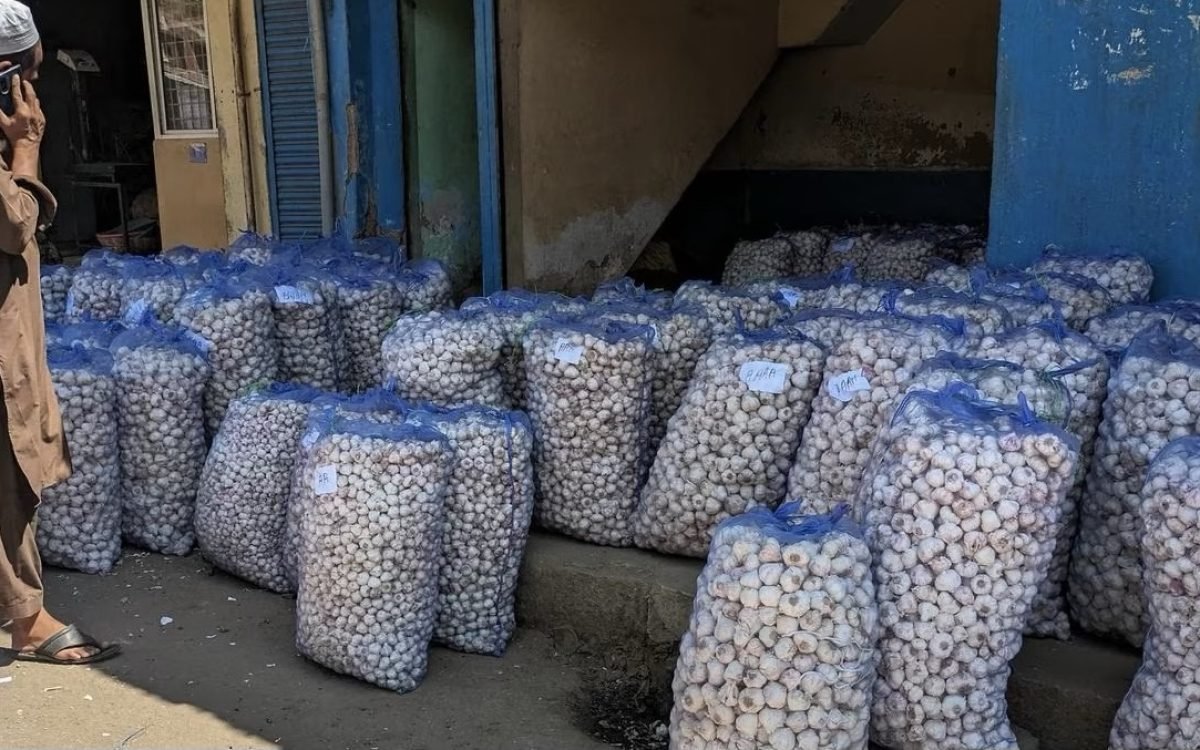In recent days, consumers in Bengaluru have been hit with a sharp increase in garlic prices, as a delay in the sowing-harvesting cycle has led to a supply crunch in the market. At the Agricultural Produce and Livestock Marketing Committee (APMC) yard in Yeshwanthpur, garlic was fetching a staggering ₹350 per kg on Friday, while in retail markets, the price had surged to a whopping ₹500 per kg.
This surge in prices represents a significant escalation from the previous selling rates, which ranged from ₹100 to ₹250 per kg in wholesale markets and ₹200 to ₹350 per kg in retail markets. The underlying cause of the price hike can be attributed to delays in the sowing of crops, resulting in a delay in garlic reaching the harvest stage.
According to Jignesh Patel, a wholesaler at the APMC, the majority of garlic supply to the market comes from states like Madhya Pradesh, Gujarat, and Rajasthan. However, with no production in Gujarat and Rajasthan currently, and only limited supply from Madhya Pradesh, the market is experiencing a severe shortage, driving prices to unprecedented levels.
The impact of the price hike is felt not only by consumers but also by retailers and vendors. Rajanna, a vegetable vendor in Vijayanagar, expressed concern over dwindling garlic sales due to the inflated prices, highlighting the challenges faced by small-scale vendors in maintaining profitability.
However, there is hope on the horizon, as traders anticipate a gradual decrease in prices with the expected increase in supply in the coming weeks. Bhavani Sona, a wholesale trader at APMC, predicts that prices may normalize by the first week of March as new crops enter the market.
Yet, for consumers like Divya Rao, who have witnessed successive price hikes in essential commodities like tomatoes and onions, the situation remains frustrating. Calls for government intervention to address these fluctuations in prices have grown louder, reflecting the impact of rising costs on household budgets.
The surge in garlic prices has also affected the hospitality sector, with hotels resorting to alternatives like processed garlic paste to cope with the price rise. P.C. Rao, president of the Bruhat Bengaluru Hoteliers Association, remains hopeful for a swift resolution to the price crisis, underscoring the importance of stable commodity prices for businesses and consumers alike.
As Bengaluru grapples with soaring garlic prices, the collective hope remains for a timely resolution to the supply shortage, ensuring affordability and accessibility of essential commodities for all.









